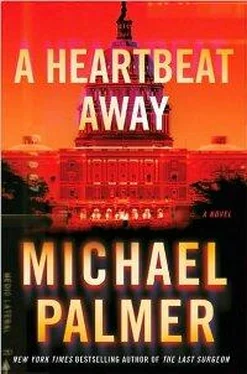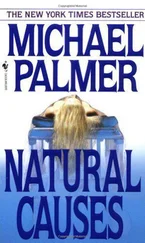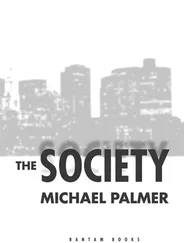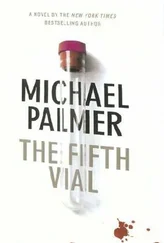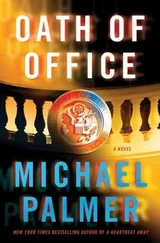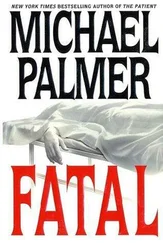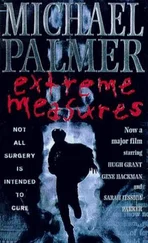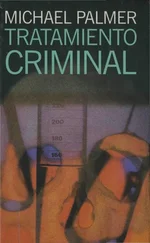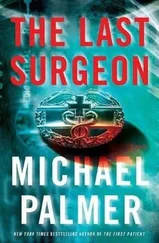“In the beginning God created the heavens and the earth. Then God said, ‘Let there be light.’ Now, Genesis has taken that light away. This is the beginning.”
“Okay, sport, you’ve been a big help—a real big help.”
“Thanks,” Eddie said meekly.
The man turned to go. Then, with a sudden, vicious backhand swipe, he slashed the huge bowie knife through Eddie Gostowski’s throat.
“Maybe I should have told him that sometimes I can’t be trusted,” he said.
DAY 1
8:30 P.M. (EST)
“Madam Speaker, the President of the United States.”
At the words from the sergeant at arms of the House of Representatives, the audience rose to its feet as President James Allaire entered the House Chambers to thunderous applause, mixed with cheers. Allaire glanced at the two Secret Service agents stationed opposite each other just inside the entryway, standing as straight and still as the black and gold Ionic columns dividing the wall behind the tribune. Sean O’Neil, head of the presidential Secret Service unit, shadowed Allaire as he glad-handed his way down the long, royal-blue-carpeted corridor.
The president’s heart responded to a rush of adrenaline as the clapping neared the decibel level of a jet engine on takeoff. He stopped every few steps to shake hands or exchange modest embraces with men in dark suits wearing carefully chosen ties, and with impeccably dressed women who smelled of exotic perfume. Ahead of him, he could just see the nine justices of the Supreme Court, and the five members of the Joint Chiefs of Staff.
Allaire sensed O’Neil move a step closer behind him as a congressman from Missouri exuberantly pumped his hand and then shouted, “Go get ’em, Mr. President! You’re going to wow ’em tonight!”
That’s right, Allaire thought. I am going to wow them.
There had been many occasions during the beginning of the first term of his presidency when Dr. Jim Allaire privately wondered about a decision he was forced to make. The weight of a single act, benign as it might at first seem, often carried with it surprising ripples and unintended consequences that added to his graying hair and the crow’s-feet at the corners of his gray-blue eyes.
However, delivering the first State of the Union Address of his second term was not one of those moments of self-doubt. He had won reelection by a fairly wide margin over Speaker of the House Ursula Ellis, and now, despite lingering sub rosa enmity between the two of them, it was time to cast aside politics and get some business done.
For the past hour, Allaire had paced inside the office of the minority leader of the House, sipping Diet Pepsi and having makeup reapplied for the cameras, all while trying to contain his nervous energy. The feeling he got before a speech of this magnitude reminded him of his days playing quarterback for the Spartans of Case Western Reserve, where he also earned his M.D. degree.
Between his college football career and years spent working as an internist at the Cleveland Clinic, Allaire had learned the importance of balancing confidence with a respectful fear of failure. Viewed as a man of the people, the genuine caring that had made him a respected physician contributed to his consistently elevated job approval rating as president. With the world’s problems getting progressively more complex and domestic terrorism on the mind of every American, the people needed a leader they could believe in—a man of poise and dignity in whom to invest their trust. Tonight, Allaire vowed to reaffirm that he was that man, and to give them a speech they would all remember.
The president reached the podium, where his head speechwriter, visibly more nervous than he was, had placed two leather-bound copies of tonight’s carefully guarded address. He turned and presented the first copy to Vice President Henry Tilden in his capacity as president of the Senate, and then the other to Ursula Ellis, who strained to maintain eye contact, and whose handshake held all the energy of a mackerel on ice. The president stifled a grin, although he suspected Ellis knew what he was thinking—fifty-three to forty-four—the margin by which he had beaten her in the election.
Allaire had practiced the speech dozens of times and could probably have delivered it flawlessly without the aid of the transparent teleprompters set on either side of his lectern. The crowd kept up its applause. With the American flag serving as his backdrop, he faced the people and waved his appreciation. Then he set his hands on the sides of the podium as a signal he was ready to begin. His eyes met briefly with those of his wife of twenty-seven years, the much-loved first lady, Rebecca Allaire, and next to her, their only child, Samantha, whom he still could not believe was a senior at Georgetown, already set for Harvard Law.
The clapping continued. Speaker Ellis rose from her chair and banged her gavel several times. At last, a profound hush fell over the seven hundred in attendance.
On the cornice overhead, the clock read exactly 8:00 P.M. Allaire’s thoughts flashed on the motto inscribed in the frieze—IN GOD WE TRUST. It was a running joke about doctors that their M.D. degree really stood for M. Diety. Allaire had a deep faith, and had never felt comfortable with the notion of physicians as gods. But he did know that at that moment, he was closer to being God than any doctor had ever been.
Thanks to the recurring deadly attacks by the apparently domestic group calling itself Genesis, the first order of business for the night had to be terrorism. People were on edge. The four attacks orchestrated by the group had been bold, ruthless, arrogant, and very dramatic. Still, there had as yet been no demands made—only the damage and the deaths. He was going to start strong with a warning to Genesis, whoever they were, of American solidarity, and a promise that their capture and successful prosecution was the top priority of his second term.
Allaire had been assured by Hank Tomlinson, chief of the fifteen-hundred-officer Capitol Police force, that security for tonight’s speech was the most extensive ever, employing state-of-the-art magnetometers, camera after camera, and manual bag checks in addition to advanced X-ray screeners. Now, it was up to the president and his speechwriters to convince the American people that they were as safe and secure in their homes and personal lives as those here with him in the Capitol of the United States.
Allaire’s speech materialized on the virtually invisible teleprompters.
“Madam Speaker, Vice President Tilden, fellow citizens: As a new Congress gathers, I am reminded of and humbled by the sacred honor you, the American people, have invested in all of your elected officials. So, before I begin tonight’s State of the Union Address, on behalf of all who have been blessed with your trust, I want to offer my bottomless thanks for another term of what my father would have called good, steady work.”
Allaire paused, waiting the perfect number of beats to let the laughter subside before resuming. It was a strategic opening that he had argued for with his speechwriters, all of whom felt it important to start on a more somber note. As usual, he was right. The State of the Union was a wonderful opportunity to showcase his humanity, in addition to imparting to the electorate his resolve and courage to do what was right and necessary.
“But with this responsibility comes great challenges that we must strive together to overcome. Our economy is growing stronger now, but there is much to be done. Unemployment is at its lowest level in more than a decade. Slowly, we are winning the war against poverty. Our optimism that we as a people can master any difficulty and achieve unparalleled peace and prosperity throughout the world has never been greater, and the state of our union is strong.”
Читать дальше
